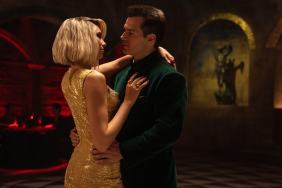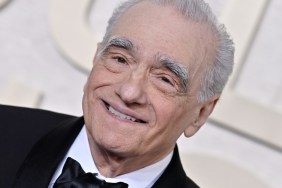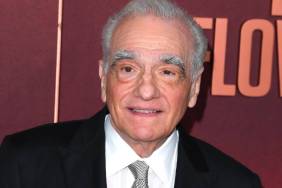
We Have a Pope, or, as I have been instructed to refer to it by publicists, Habemus Papam, is an excellent idea for a film that unfortunately didn’t translate into an equally excellent film. Billed more as a comedy between a newly elected pope and his therapist than the reflective drama it is, the film’s confused intentions offer up the first clue as to what went wrong here.
The story begins with Melville (Michel Piccoli), the newly elected Pope, suffering a panic attack just as he is about to be introduced to the masses. Having lost faith in himself and not God, he eventually escapes the confines of the Vatican and his those around him and begins exploring a world he’s as unfamiliar with as they are with him.
Able to walk the streets unnoticed you get the sense Melville is beginning to find reasons as to why he accepted duties as the newly elected Pontiff in the first place. Listening to the stories of the people and seeing the drama of his balcony no show played out on the nightly news, the importance of his decision is certainly not lost. But just as important as it may be for him to finally step up as the new Bishop of Rome, he’s sure he must also know why he is doing it and if it is the proper next step in his life.
Before the film was screened it was easy to refer to it as Italy’s answer to The King’s Speech. Of course, based on what I just told you that may not make much sense. There’s no Australian therapist and outside of addressing the masses, there’s no grand speech Melville must make. But just wait, this is where the story loses its footing.
Before excusing himself from the Vatican walls, Melville meets with a psychoanalyst played by director and co-writer Nanni Moretti. It’s a brief meeting as the unnamed psychoanalyst is forbidden from asking anything too personal, which ends with absolutely no results. Despite the failure, the psychoanalyst is not allowed to leave to ensure the secrecy of the vote. So for the rest of the film he walks the halls of the Vatican, chatting with the sequestered cardinals, plays a little cards and even sets up a volleyball tournament in a veiled effort to show support for the newly elected Pope. His Holiness is thought to be in his apartments praying and pulling himself together, but in fact a Vatican guard is simply up there ruffling the curtains as the Pope is out exploring Rome.
It’s this part of the story that throws everything off. I’m not sure why it was included or, more to the point, why it was decided it needed to be executed in a slightly farcical nature. Moretti’s portrayal of the psychoanalyst is one of a non-believer, and while this is a subject that is brought up, it is never explored. This film could have been a much larger reflection on religion and what it means to commit yourself to serving God, exploring the effect of a non-believer in the midst of these cardinals who’ve just seen the man they elected Pope run from his commitment and the world’s reaction to what has happened. Instead, all of it is presented with a limp commitment, nothing is really said or done up until the film’s rather brave conclusion, a conclusion it certainly didn’t earn.
Moretti admits in the press notes he too is a non-believer and that he identifies partially with both his character the psychoanalyst and the newly elected Pope’s “uncomfortable feeling of not being up to the role.” Perhaps it is this conflict inside Moretti that carries through to the film’s confused tone and ultimate non-committal.
Overall this is a weak effort that really could have been something. It could have asked questions about religion, about society’s perception of religion and about the struggle to remain faithful and act when called upon. Instead it dabbles around the edges of all of these themes, never committing to one or the other and by the end leaves the audience with a grander vision than the film ever dared achieve.










